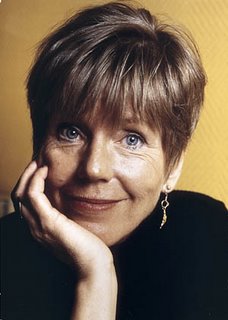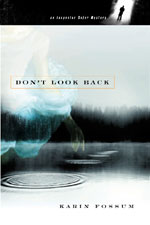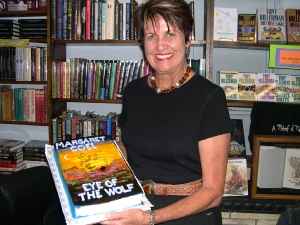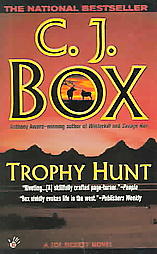
Fossum is a Norwegian author whose first mystery, Se Deg ikke Tilbake!, was translated into English as Don't Look Back in 2002. According to an article at Wikipedia, she's known in Norway as the "Norwegian queen of crime."
Well, Northfield is one of the centers of Norwegian-American culture in the U.S. A student can earn an undergraduate degree in Norwegian, at St. Olaf College right here in Northfield. So, when I checked the Northfield Library, I almost expected to find copies of Fossum's books in Norwegian and English. Not so.
Neither the public library, the St. Olaf library, nor Carleton College's library had a copy of any of her books! The Southeastern Libraries Cooperating (SELCO) Interlibrary Loan Service found a copy for me in The Blooming Prairie, Minnesota library. I'm glad they did.

Fossum creates a good plot and tells a good story in Don't Look Back. The story centers on Inspector Konrad Sejer and his young assistant. Just don't expect much action. Most of the book is told from Sejer's point of view as he asks questions and puzzles over the answers he collects. The story and the way it played out reminded me very much of the British mysteries on Masterpiece Theater's Mystery or of the unfolding stories on one of the CSI programs. (It was made into a mini-series for Nowegian television in 1999.) What Sejer learns helps him discard misleading ideas and directs him to the bad guy. Along the way there are glimpses of the investigating characters and village life in Norway. (I could have done with more of both.)
I liked this one. I'll go asking for others (there are two other Fossum mysteries in the SELCO system) when I return Don't Look Back.
- An interview with Karin Fossum on her publisher's web site
- Wikipedia (English) article on Fossum
- Wikipedia (Swedish) article on Fossum
- Fossum's literary agent's web page (Norwegian)
- A readers' group guide to Don't Look Back from Random House in the UK
- A review of Don't Look Back by Bob Cornwell at Tangled Web in the UK


